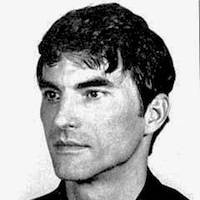

Tao Te Ching

Thomas Cleary
1949 CE –
Translator of over 80 books from 8 different languages, Cleary mainly focused on translating Buddhist, Taoist, Confucian and Muslim classics never translated into English. Motivated by his own spiritual path and interest in Eastern wisdom and although credential in the scholastic world with a PhD from Harvard and a JD from Berkeley, he shunned the security of academic and institutional roles staying independent and shunning academic cliques, organized education, sectarian allegiance, and anything with shades of a cult. More recently his interests involve Comparative Constitutional Law and he has translated Gallic law texts written in Old Irish with the intention to help the American legal system evolve past its difficulties adapting to our ever-changing new technological world.
Lineages
American (USA) Translators
Eras
Generations
Baby Boomer (1946 – 1964 CE)Unlisted Sources
Wen-Tzu Understanding the mysteries (1991)
Quotes by Thomas Cleary (12 quotes)
“Taoism is based, first and foremost, on the experience of this universal Way, the essential reality through which derivative ways might be comprehended... Eventually the scope of the Way led them to undertake the investigation of vast domains of knowledge and experience... in three critical areas: individual well-being, social harmony, and accelerated evolution of consciousness.”
from Essential Tao
Comments: Click to comment
“Chuang Tzu was a deep thinker and a brilliant writer. He could be magnificent and grandiose, outrageous and funny, sharp and acerbic, dreamy and playful, sober and earnest, serene and unruffled. The inner meanings of his allegories have been pondered for centuries... [he] had the audacity to lay bare the root of the human condition”
from Essential Tao
Comments: Click to comment
“Composed over 2000 years ago, the Tao Te Ching and Chuang-tzu are among the world's most ancient and honored books of practical wisdom... Few of the world's great books have achieved the perennial currency of these writings... virtually all literate people in China have read [them]”
Comments: Click to comment
“In its pristine sense, the meaning of following the Tao, later called Taoism or wayfaring, included the whole spectrum of the search for knowledge... the schools of learning that retained the most comprehensive range of interest general came to be known as Taoist... [It] was used as a primary source for terms and concepts through which Buddhism could be explained to the Chinese.”
from Essential Tao
Comments: Click to comment
“According to the Taoist master, Liu Yiming, the Way comes to the best people before virtue, whereas virtue is needed by middling and lesser people before they can understand the Way.”
from Essential Tao
Comments: Click to comment
“To worry about length of life and fear of death creates tension that tends to shorten life”
from Essential Tao
Comments: Click to comment
“Han Confucianism turned to despotism and Han Taoism took to magic and drugs.”
from Wen-Tzu Understanding the mysteries (1991)
Comments: Click to comment
“The concealment of the leadership of real people [those who have realized the Taoist ideal of freedom from artificialities] in unobtrusive spontaneity is a correspondingly common Taoist idea”
from Wen-Tzu Understanding the mysteries (1991)
Comments: Click to comment
“The author of the Wen-tzu [a disciple Lao Tzu passed on to a collection of ancient Taoist teachings] is supposed to have advised King P'ing of the Chou dynasty hundreds of year before Lao Tzu... The assignment of authorship in ancient Taoism is generally symbolic rather than historical.”
from Wen-Tzu Understanding the mysteries (1991)
Comments: Click to comment
“Competition gone to extremes becomes conflict... the economic cost of war translates directly into human cost above and beyond that of the dead, wounded, widowed, and orphaned”
from Wen-Tzu Understanding the mysteries (1991)
Comments: Click to comment
“the grand vision of halcyon, an ideal society guided by wisdom in with all people and all things equally find their places in an organic whole, where they can express their individualities and exercise their particular abilities to the greater good of one and all”
from Wen-Tzu Understanding the mysteries (1991)
Comments: Click to comment
“the Wen-tzu presents a distillation of the teachings of its great predecessors, especially the Tao Te Ching, Chuang-tzu, and the Huinan-tzu. It particularly follows the latter in its inclusion of selected material from Confucian, Legalist, and Naturalist schools of thought. In addition, the Wen-tzu also contains a tremendous amount of other proverbial and aphoristic lore that is not to be found in its predecessors.”
Comments: Click to comment
Comments (0)